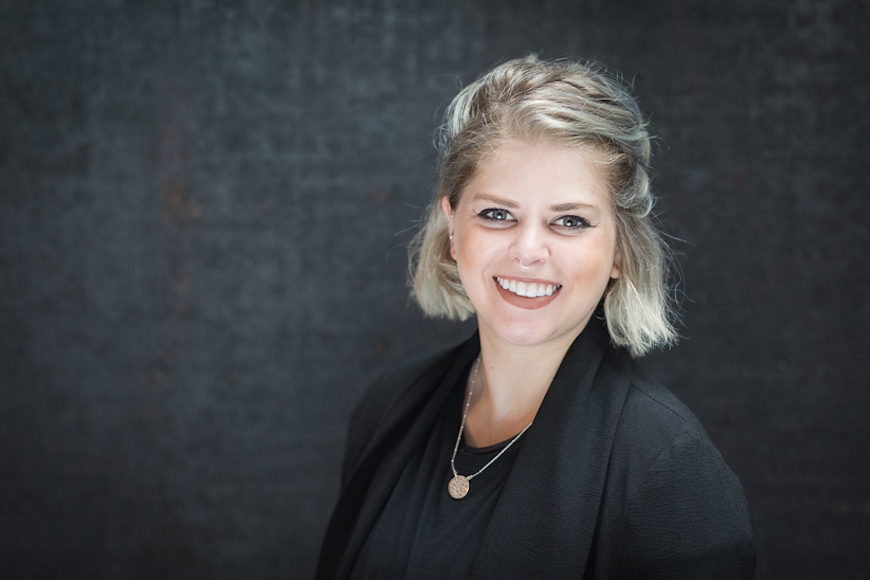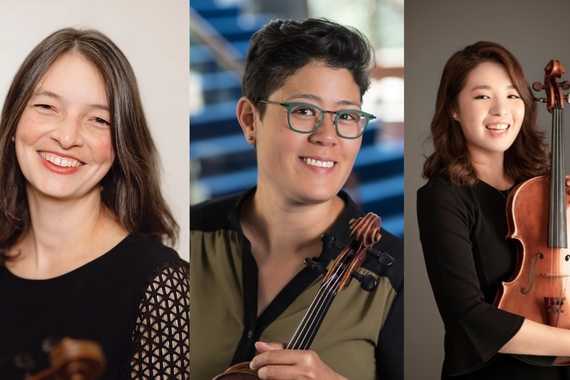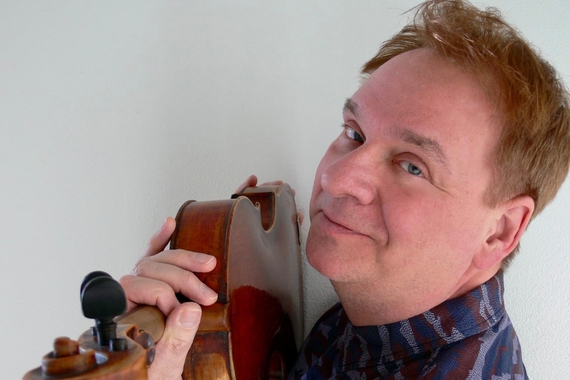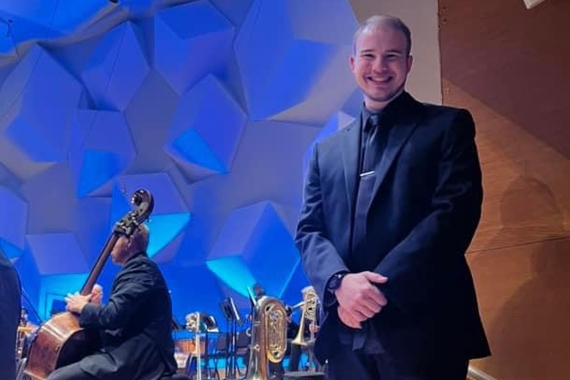“The Sonic is Telling a Story Too”
Kathryn Huether (advisee of Dr. Karen Painter) is a PhD candidate in musicology. Her research examines how sound—from sonic media to a survivor’s voice to the sound of language—affects one’s understanding of the Holocaust. Huether was awarded a research fellowship for the summer at the United States Holocaust Memorial Museum in Washington D.C. and will continue her work on sound and Holocaust representation in the fall, curating an audio guide for the Treblinka memorial site in Poland as a recipient of U of M’s Interdisciplinary Doctoral Fellowship.
What inspired you to begin researching this topic?
How did a girl from Montana become interested in World War II and the Holocaust, and subsequently, its memory representation? I was a child who could never read enough—and therefore I’m 99 percent certain I read every book on the shelves at my small public school’s library, including Elie Wiesel’s Night. As a 10-year-old I did not know what it meant to be Jewish, or what the Holocaust was, yet Wiesel’s memoir truly served as the catalyst for my PhD research. That, coupled with my musical background—I studied the violin as a child— served as the foundation for my interest in the affective impact of music, Jewish music, religious studies, and Holocaust studies.
What is your research about?
My dissertation research is two-fold, focusing on the affective influence of sonic media technology and the philosophical nature of sounds. In other words, how does what a visitor hears in a museum exhibit or representation of Holocaust memory impact that visitor’s response and understanding of the Holocaust? My dissertation examines a breadth of sonic variants—ranging from the sound and impact of language in the Holocaust to audio guides and further, to pre-existing soundscapes at the historical sites, such as Treblinka and Auschwitz-Birkenau. As a research fellow at the United States Holocaust Memorial Museum I engage with multiple forms of survivor testimonies, both digital and live, and how the survivor’s voice and the environment of their testimony affects visitors.
How long have you been researching this topic?
I began seriously researching this topic with my first master’s degree thesis in religious studies, “Hearing the Holocaust: Music, Film, Aesthetics.” I examined the usage of sound and music in two Holocaust film documentaries, Night and Fog (1956) and Auschwitz Death Camp: Oprah, Elie Wiesel (2006), arguing that the accompanying soundtracks subjectively influenced a viewer’s reception and understanding of the documentary material presented.
How will the general public be able to access your research?
My goal is for my research to be applied to Holocaust memory as it is presented today. This upcoming year I will curate an audio guide for the Treblinka memorial site as part of my fellowship through U of M’s Center for Holocaust and Genocide. My audio guide will use a phone application, making it accessible around the world. I hope for my research to cultivate an awareness of the world of representations that is not only visual, but also sonic, and to emphasize that the sonic is telling a story too, perhaps even a different story than the visual.
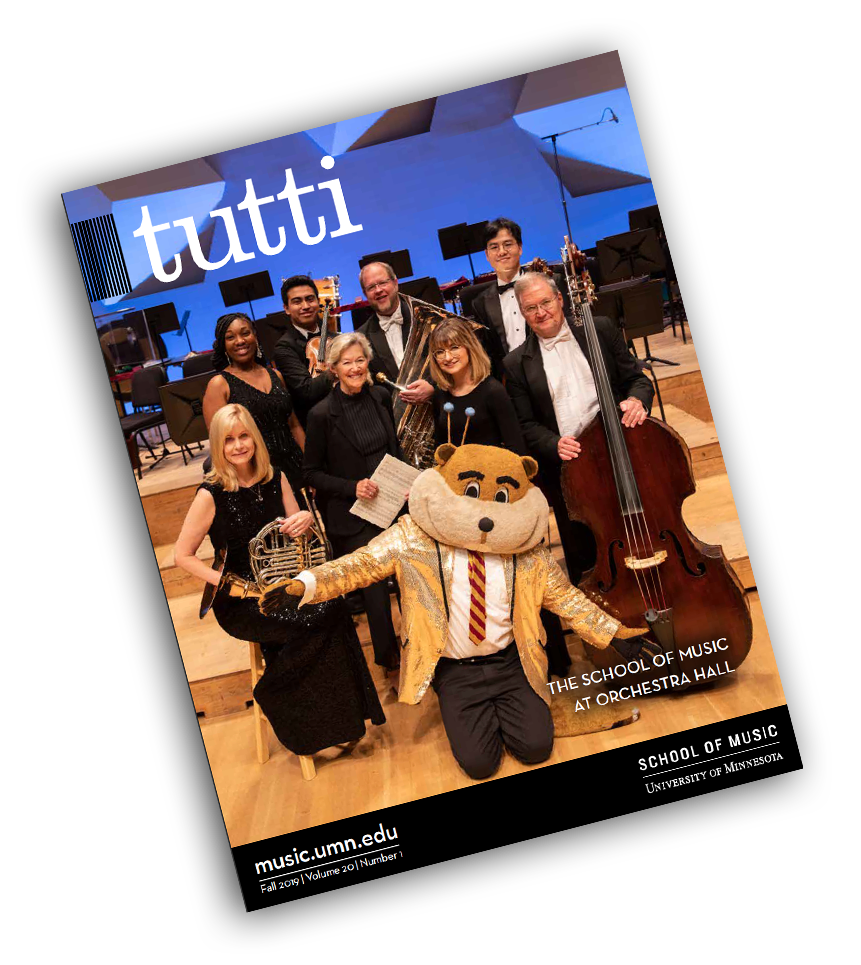
Tutti. (Italian) all. every musician to take part.
Tutti is the annual magazine of the University of Minnesota School of Music.
